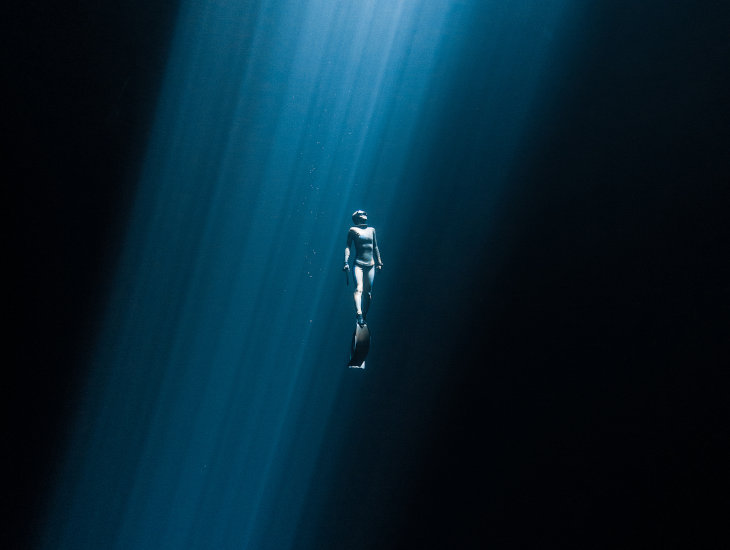 Passover’s Message of Hope in the Aftermath of Oct. 7
Passover’s Message of Hope in the Aftermath of Oct. 7


7 min read
What if faith is more reliable than logic?
I wrote significant portions of my first book (The Jewish Self) while serving in the reserves of the Israeli army. When a unit is tasked with patrolling a segment of the border, it is housed in a small base on that border, and one of its responsibilities is to protect the base.
With this in mind, before reporting for a month of reserve duty, I purchased a 50-meter extension cord and showed up with it and a small laptop. When I was assigned a daytime stint in one of the guard towers, I found the nearest free outlet, plugged in, and happily ascended for an eight-hour shift during which my focus flowed smoothly between scanning the soft beauty of Israel for danger and typing.
When I returned for another month of duty the following year, I gave a copy of the finished book to one of my commanders, an unusually intelligent and sensitive Israeli. By the time I was called up the year after that, he had read it and, from then on, called me professor.
He viewed me with some bewilderment. His secular Israeli upbringing had left him unprepared to meet someone who was both religious and carefully thought through. He asked me, not as a challenge but clearly perplexed, "Do you really believe all this?" Unfortunately, it was not in a context that invited a sincere discussion. But I thought to myself, "He thinks faith is something you have, and it's actually a discipline."
The view that one either "has" faith or "doesn't" is based on a misunderstanding of what it means to be faithful in any meaningful sense.
While having faith in God's existence might seem straightforward – either you have it, or you don't – in actuality, it is not. The view that one either "has" faith or "doesn't" is based on a misunderstanding of what it means to be faithful in any meaningful sense.
What is faith? It is not the product of logical deduction – that is called knowledge. Knowledge carries the compelling certainty characteristic of logic. Since faith is not based on logic, we presume it lacks certainty – it is some subjective feeling, emotion, or awareness without any real and reliable grounding – something purely subjective that you either have or don't. Such a faith is not the faith of the Torah.
The assumption that the only alternative to logic is ungrounded subjectivity is based on an implicit acceptance that truth is the exclusive purview of understanding and, therefore, meaningful certainty can only come through reason. There is, however, a level of reality more fundamental than understanding, the truth of which is accessed in a very different manner. That is existence or being. Thought does not exist on its own – we think thoughts. Thought only exists in the context of our existence – existence is the first reality. In thought, we become aware of existence, but existence itself is indifferent to our thoughts.
The truth of existence is self-evident in our awareness of being – introducing a logical step merely compromises our engagement with reality.
We are confident of our existence. After all, Descartes taught us, "I think; therefore I am." There is something profoundly amiss in this. It is not because I am thinking that I conclude that I must be. Rather, in my awareness of being, I am. Descartes invites us to step out of the primary reality of being to rely on logic to prove we exist! It is like standing before the Matterhorn, taking a picture of it, and gazing at the image to determine if the Matterhorn is magnificent.
Our existence is the only reality that we access in its being, what it is, as opposed to from the outside in its appearance or our understanding of it. Descartes suggests we abandon this one access point to existence and substitute for it proof of existence. The truth of existence is self-evident in our awareness of being – introducing a logical step merely compromises our engagement with reality.
There is an infinite continuum of depth to being, and through awareness, we have the potential to access a serious slice of this depth. If, however, we only reach a superficial level, we are aware only of our own individuality. Since this is our access to being and therefore determines our assumptions about the nature of being, this superficiality can lead to profound distortions in our understanding of reality. But we can develop our engagement of being so that we reach a deeper level, one where we become aware that the existence we experience extends beyond our individuality and is not ours.

In other words, we experience our self as based in and emanating from a source beyond our individuality. The awareness that being is based beyond us, that there is a Source to existence, is the ground of faith. Thus the most profound name of God in the Torah, the four-letter name, is a conflation of היה, הוה, and יהיה – was, is, and will be – in other words, all-being. God is being, and anything that on any level exists derives its existence from God. The awareness that being is grounded beyond us is the foundation and first step to faith in the existence of God.
Faith based on an engagement of being lacks the certainty of logical knowledge but has a degree of certainty much more powerful, for this faith is inextricably bound up in our awareness of our own existence. If you question the validity of this self-evident form of certainty, it is worthwhile remembering that all logical certainty begins from premises. Premises are not the result of logical argument. The premises of our metaphysical arguments are all based on truths that are, to us, self-evident. These premises' self-evidentness is a consequence of their being inextricably bound up in the nature of our awareness.
The Psalmist states, "To declare His kindness during the morning and His faith during the nights (Psalms 92:3)." The light of day reveals to us the splendor of all that fills creation, and we are overwhelmed – or distracted – by God's giving and kindness. Night, when darkness covers everything but our awareness of self, is the time for faith.
We live in a cultural moment when we are so focused on the world around us that we forget our own existence, leading to a critical lack of context in our perception of reality. This is exacerbated by the fact that our world, in the words of Rabbi Moshe Shapiro, makes war on night. There is no time when the lights are off, and our attention focused on our raw existence.
On those rare occasions when we are truly alone with ourselves, we flee to our devices to keep ourselves from what we experience as emptiness. That perceived emptiness is a reflection of our oblivion to our own existence, an oblivion that should concern us since it is the basis and prerequisite to all experience. We have forgotten our existence and, in doing so, we have lost access to meaningful, grounded faith.
When exploring faith, it is not helpful to gaze inward and simply ask ourselves if we find it there or not. Instead, we should ask ourselves if we are prepared to undertake the discipline that makes honest and meaningful faith possible. Without at least attempting to awaken ourselves to our existence and tasting that level of awareness, asking ourselves if we have faith is like asking ourselves if we speak French when we have never bothered to learn the language.
If you are interested in seeing this approach more fully developed, you can see my essay "The Nature and Pursuit of Truth in Different Cultural Contexts." The original version of the essay is found in Strauss, Spinoza, and Sinai: Orthodox Judaism and Modern Questions of Faith, edited by Jeff Bloom, Alec Goldstein, and Gil Student from Kodesh Press.
